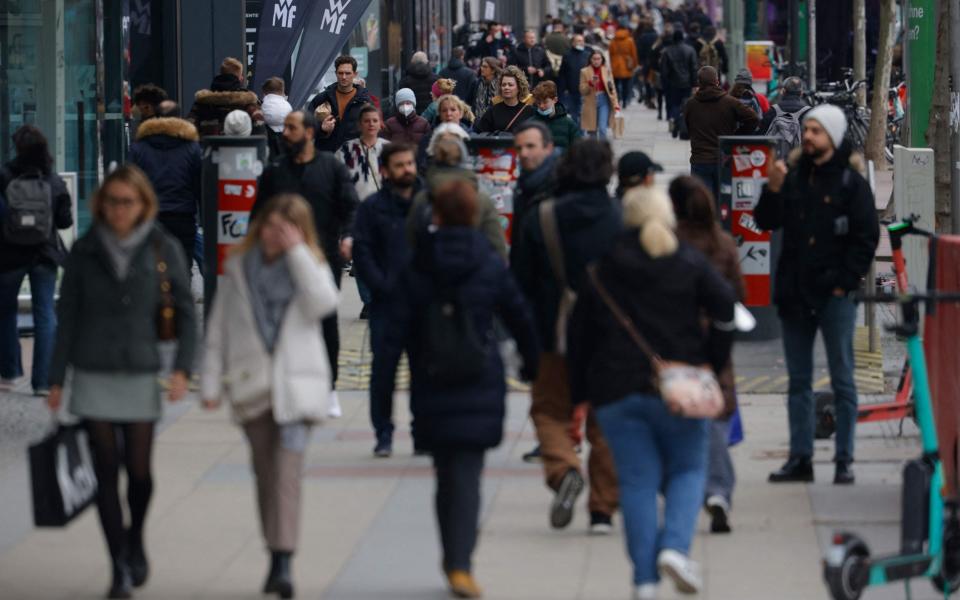Germany slumps into second recession, says Bundesbank

Germany may have slumped into a recession for the second time since the pandemic started, its central bank has warned.
The Bundesbank said Europe’s largest economy could see output drop “noticeably” this quarter as it emerges from its worst-ever surge in cases.
German GDP fell by 0.7pc in the fourth quarter of last year, meaning another decline in output would tip it into a technical recession.
Officials warned that labour shortages were “markedly” blighting activity across the economy.
The Bundesbank’s monthly report said: “In contrast to previous waves of the pandemic, it’s not just the services sector that’s hit by restrictions and adapted behaviour.”
However, despite the gloomy assessment, recent business surveys suggest German business activity picked up sharply this month.
An improving services industry led private sector activity to rise at the fastest rate in six months, according to purchasing managers’ index data from IHS Markit.
Its composite PMI gauge climbed to 56.2, versus 53.8 in January. A reading above 50 indicates expansion compared with the previous month.
Manufacturers reported that supply chain bottlenecks have continued to ease over recent weeks, but cautioned that the prices they charge are none the less rising at the second-fastest rate on record.
Some factories reported output had been strained due to staff absences linked with Covid.
Phil Smith from IHS Markit said: “The German economy continued to regain momentum in February following December’s brief stagnation in output growth.
“Overall activity rose the most since last August, driven this time by the services sector as manufacturing production increased more slowly than in January, when it had provided the main impetus.”
Growth in France, Europe’s second biggest economy, was the strongest since June 2021 as both services and manufacturing picked up.
Across the whole euro area, prices charged for goods and services rose by the most on record, putting more pressure on the European Central Bank to intervene over soaring inflation.
Andrew Kenningham from Capital Economics said the jump in reported activity indicated output across the bloc will climb 0.5pc during this quarter.
He said: “There are tentative signs that supply chain problems are fading – particularly in Germany – but price pressures have not eased at all,” he added.
Amarjot Sidhu, an economist at BNP Paribas, said the PMI figures showed the eurozone economies “have turned a corner following a subdued start to the year”.
He warned broadening prices pressures mean inflation is likely to remain higher for longer.
Mr Sidhu said: “We think the real income shock driven by this bout of higher inflation together with persisting supply chain disruptions will hold back growth in the coming months, even if the impact on demand is not immediately visible in today’s surveys.”
It came as new data showed the cost of materials for German manufacturers hit a new record high last month.
Producer price index inflation stood at 5pc in the year to January, the sharpest increase since reunification.
The biggest rise was from energy costs, which climbed 66.7pc over 12 months according to the German Federal Statistics Office.
Marcus Widén, from lender SEB, warned record-high price rises for consumers would not begin to ease until businesses began to see their costs come down.
Germany began scaling back its Covid restrictions last week, as it moves past the peak of its latest virus surge. Daily cases hit a record high last week, but deaths have been more subdued than in previous waves.
